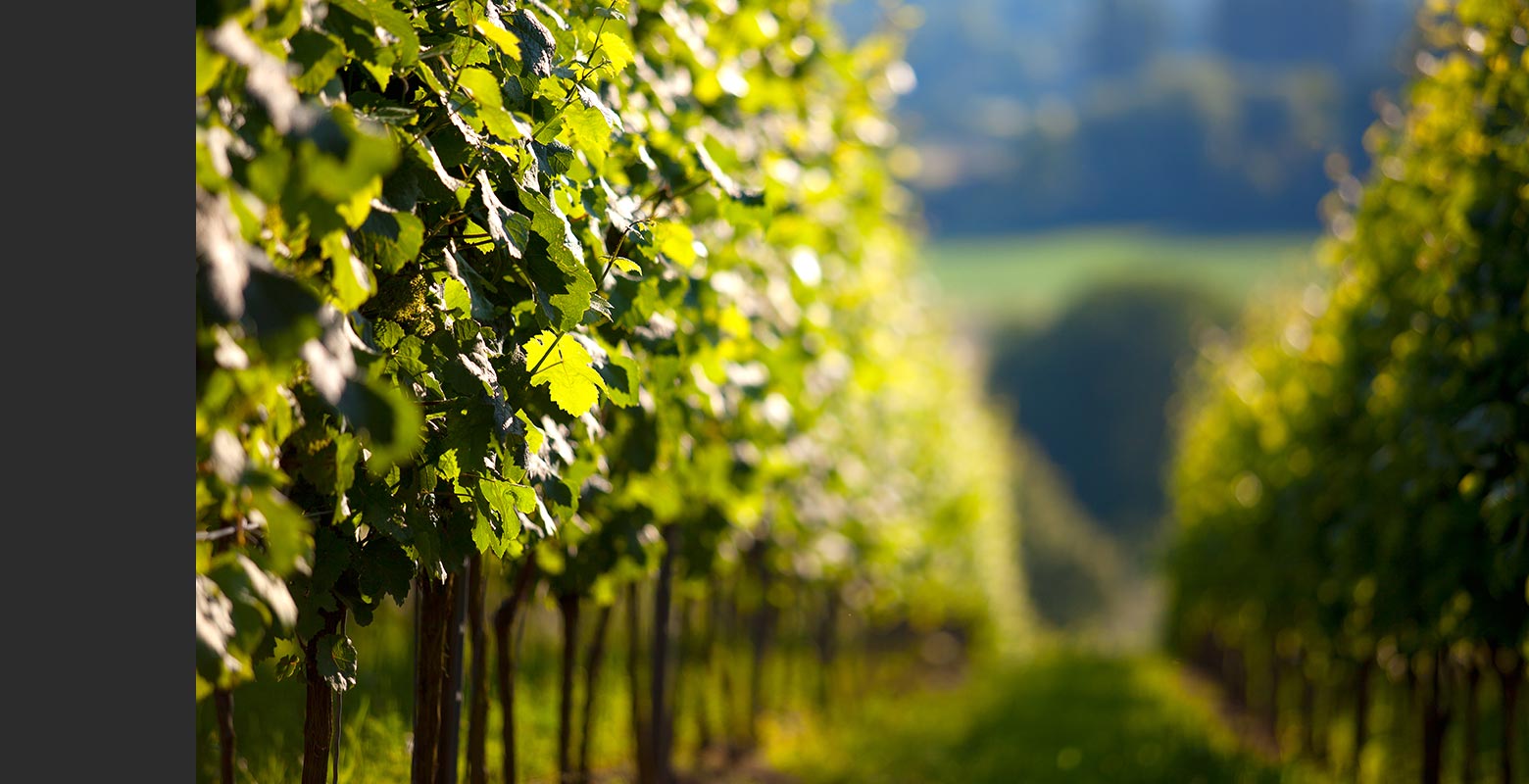Jean-Christophe Dupré
" Nous avons le devoir, pour les générations futures, de pérenniser le patrimoine viticole du Mâconnais et de toujours oeuvrer dans le sens de la qualité. "
"We owe it to future generations to perpetuate the Mâconnais wine tradition and to constantly work towards quality”.
THE DOMAINE
The family farm was created in the 50's and at the time it was more focused on mixed farming, raising livestock, and working a few parcels of vines (approximately 3 hectares). By the late 80's, it had gradually switched to viticulture. Jean-Christophe joined the business in 1990, followed by Vincent in 1994. By then, the estate had grown to around a dozen hectares. They subsequently gave up the livestock farming, took over several small vineyards in the villages of Royer and Mancey, and the domaine expanded to the size it has today, around 26 hectares.
"I plant my vines according to the soil", Jean Christophe likes to say. The 10 hectares of Chardonnay ripen on the white marl of Mancey on a south/ southwest-facing slope. The Pinot Noir prefers the red earth of "Sous Borreau" on the slope, east of Royer. The Gamay is mainly planted on the deep clay-limestone soil of the Royer valley.
The Domaine's red wines show a beautiful complexity and a distinct character. The low-yielding vines create wines "that must be left to come", according to the cellar master. All the wine is aged in barrels, of which 20% are new.
The Burgundy Chardonnays are robust and appetizing. The Macon whites, produced in cooler soils, show a lovely freshness on the palate, along with notes of citrus and white flowers on the nose.
Grass cover
Jean-Christophe Dupré is a great believer in grass cover, and he mows his twice a year. Grass cover offers several benefits:
- Sustainability of the parcels by reducing erosion,
- Improved soil structure because of the grass - the nutrients needed by the vine are more readily available,
- Reduction in the use of herbicides,
- Reduction in yields.
Grass cover is therefore a means of improving the quality of our grapes.
Royat Cordon pruning
Royat Cordon is a short pruning method which reduces yields. We decided to use this method for our Pinot Noir, Gamay and Aligoté vines to improve the quality of the grapes. This pruning method requires greater vigilance in the summer because the vine is more fragile. We therefore have to wire-train the vine very quickly to prevent the shoots being wind-damaged.
The harvest is not reduced, but optimized. In fact, this pruning method allows us to adapt the yield to the varietal and the appellation we are producing. Our grapes are better quality, they are richer in colour and they ripen better. We can pick them with an optimal potential degree.
“Reasoned Viticulture”
We don’t just pay lip service to “Reasoned viticulture”, the weather station, which we have set up on the domaine, allows us to determine the treatments required with greater precision and reduce these significantly. Organic amendments are the only inputs we allow.
Our objective is to continuously improve our practices. The "Reasoned Agriculture" certification, obtained in 2008, ensures traceability on all our parcels.
This approach allows us to get our staff more involved in all their work, and to give them a sense of responsibility. To manage traceability, we have invested in traceability software which accurately records all our operations in the vineyards, parcel by parcel.
Nowadays control of production is essential for quality wines.
Jean-Christophe Dupré
" Nous avons le devoir, pour les générations futures, de pérenniser le patrimoine viticole du Mâconnais et de toujours oeuvrer dans le sens de la qualité. "
"We owe it to future generations to perpetuate the Mâconnais wine tradition and to constantly work towards quality”.
THE DOMAINE
The family farm was created in the 50's and at the time it was more focused on mixed farming, raising livestock, and working a few parcels of vines (approximately 3 hectares). By the late 80's, it had gradually switched to viticulture. Jean-Christophe joined the business in 1990, followed by Vincent in 1994. By then, the estate had grown to around a dozen hectares. They subsequently gave up the livestock farming, took over several small vineyards in the villages of Royer and Mancey, and the domaine expanded to the size it has today, around 26 hectares.
"I plant my vines according to the soil", Jean Christophe likes to say. The 10 hectares of Chardonnay ripen on the white marl of Mancey on a south/ southwest-facing slope. The Pinot Noir prefers the red earth of "Sous Borreau" on the slope, east of Royer. The Gamay is mainly planted on the deep clay-limestone soil of the Royer valley.
The Domaine's red wines show a beautiful complexity and a distinct character. The low-yielding vines create wines "that must be left to come", according to the cellar master. All the wine is aged in barrels, of which 20% are new.
The Burgundy Chardonnays are robust and appetizing. The Macon whites, produced in cooler soils, show a lovely freshness on the palate, along with notes of citrus and white flowers on the nose.
Grass cover
Jean-Christophe Dupré is a great believer in grass cover, and he mows his twice a year. Grass cover offers several benefits:
- Sustainability of the parcels by reducing erosion,
- Improved soil structure because of the grass - the nutrients needed by the vine are more readily available,
- Reduction in the use of herbicides,
- Reduction in yields.
Grass cover is therefore a means of improving the quality of our grapes.
Royat Cordon pruning
Royat Cordon is a short pruning method which reduces yields. We decided to use this method for our Pinot Noir, Gamay and Aligoté vines to improve the quality of the grapes. This pruning method requires greater vigilance in the summer because the vine is more fragile. We therefore have to wire-train the vine very quickly to prevent the shoots being wind-damaged.
The harvest is not reduced, but optimized. In fact, this pruning method allows us to adapt the yield to the varietal and the appellation we are producing. Our grapes are better quality, they are richer in colour and they ripen better. We can pick them with an optimal potential degree.
“Reasoned Viticulture”
We don’t just pay lip service to “Reasoned viticulture”, the weather station, which we have set up on the domaine, allows us to determine the treatments required with greater precision and reduce these significantly. Organic amendments are the only inputs we allow.
Our objective is to continuously improve our practices. The "Reasoned Agriculture" certification, obtained in 2008, ensures traceability on all our parcels.
This approach allows us to get our staff more involved in all their work, and to give them a sense of responsibility. To manage traceability, we have invested in traceability software which accurately records all our operations in the vineyards, parcel by parcel.
Nowadays control of production is essential for quality wines.

